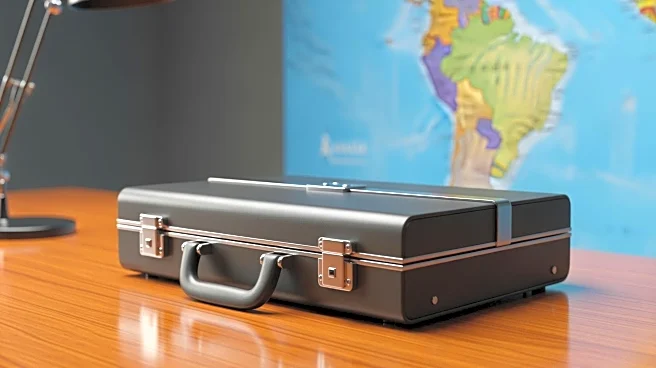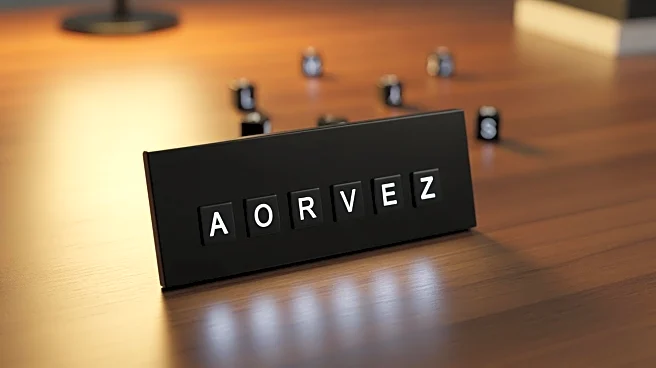What's Happening?
Ned Price, a former State Department official and CIA intelligence analyst, discussed President Trump's recent public confirmation of a CIA covert action program in Venezuela. Price highlighted the unusual
nature of the president openly discussing such operations, which typically remain classified. The program, authorized by a presidential finding, allows the CIA to conduct operational activities beyond traditional intelligence collection. Price raised questions about the nature and objectives of these activities, which could range from propaganda to regime change. The revelation has sparked concerns about the potential impact on Venezuela's stability and regional migration pressures.
Why It's Important?
The public acknowledgment of covert operations in Venezuela marks a significant departure from standard practices, potentially serving as a psychological tactic against the Maduro regime. The U.S. has a historical precedent of intervening in Latin America, but such actions have often led to long-term instability rather than democratic outcomes. The current situation in Venezuela is already contributing to migratory pressures in the region, which could intensify if the government weakens further. Additionally, the operations could inadvertently empower criminal organizations, complicating efforts to address narco-trafficking.
Beyond the Headlines
The ethical implications of covert operations in Venezuela are profound, as they challenge the norms of international diplomacy and sovereignty. The potential for increased migration and regional instability raises humanitarian concerns, while the focus on regime change could undermine diplomatic efforts. The situation also highlights the complexities of balancing national security interests with ethical considerations in foreign policy.









